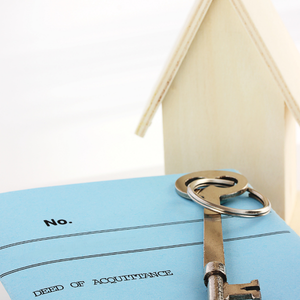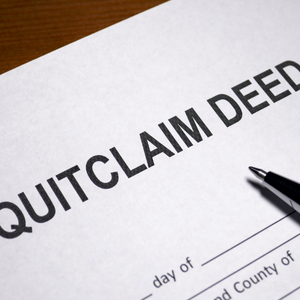
Knowing The Fundamentals Of Deeds
Deeds are instrumental when it comes to the transfer as well as the establishment of property ownership. Deeds, as legal documents, are no less than legal records of the transfer of ownership of real estate that establish and enforce the ownership of real estate.
For Seattle, Washington, the fundamentals of deeds, like warranty deeds and other types of deeds, are of great importance, together with real estate property ownership and real estate law.
Comprehension of the core fundamentals of deeds helps property owners and prospective buyers to protect their interests and check legal compliance. This is the reason why we are going to examine deeds and the importance of deeds in real estate transactions.
What is a Deed?
The cornerstone of any property transaction is the transfer of ownership documents known as deeds. Each deed documents both the grantor, the person transferring the property, and the grantee, the person receiving the property. Deeds in Washington, as well as Seattle, must include certain legal parameters if the deed is to be considered valid. These parameters include the legal description of the property, the signature of the grantor, and the signature of a notary public.
Common deed types include warranty, quitclaim, and special deeds, which offer varying legal protection to the grantee. Properly executed and recorded deeds also prevent ownership disputes. The use of a special deed can be strategically important, as it may substantially influence the outcome of ownership claims. Real estate attorneys provide important services to their clients in these situations.
Deeds also provide ownership of properties, which helps meet the open government requirements of Washington. Recording deeds with the King County clerk helps standardize ownership compliance and shields against other ownership claims. This step is also important in formalizing the property transfer. Understanding which deeds provide legal protection, as well as peace of mind, is crucial when settling estates, transferring ownership, or purchasing property.
The Role of a Warranty Deed
In real estate transactions in Washington, warranty deeds are common and helpful to buyers. A warranty deed transfers ownership of a property and guarantees to the grantee that there are no claims, encumbrances, or defects on the property and title. The grantor has the obligation to defend the grantee against claims and disputes regarding the title that arose before the transfer. The Seattle real estate market is in part served by warranty deeds because of the added enforcement on ownership.
Warranty deeds demand a scrutinized examination of the title records to ascertain the existence of any legal issues or encumbrances. A legally practicing attorney must validate a complete and warranty deed-compliant title document to ensure that the buyer is protected in compliance with applicable state and local statutes. Because of the added legal protection offered to buyers, warranty deeds are also more easily granted on mortgages and larger estates. Although a warranty deed offers the highest level of protection, it must be correctly executed in order to be legally effective.
The failure to complete a property or incorrect signatures is also detrimental to a warranty deed. A set of local regulations, such as those within Seattle and King County, may be applicable to the preparation and filing of a warranty deed. To circumvent property disputes, it is important to observe and understand these requirements. A warranty deed lawyer is helpful in these instances, and such a property owner is able to encircle such issues with the reasonable assurance that their ownership has been properly secured.
Exploring Quitclaim Deeds in Washington

In the realm of Washington real estate, quitclaim deeds play a pivotal role in property transfers, especially when ownership involves multiple parties or familial relationships.
Unlike warranty deeds, quitclaim deeds offer a straightforward method for transferring interests in a property without guaranteeing a clear title. By comprehending these deeds’ unique characteristics and their utility in specific scenarios, property owners in Seattle can make informed decisions regarding ownership changes.
Additionally, understanding the local legal framework, including King County recording requirements and excise tax implications, is crucial for seamless and compliant property transactions.
Why You Might Need a Quitclaim Deed
A quitclaim deed is necessary when transferring property ownership requires trust and knowledge of the other party’s legal claim. Adding a spouse to a deed after marriage or transferring property between siblings are common uses for quitclaim deeds. They assign property rights quickly and easily without the legal assurances of a warranty deed. Despite its simplicity, a quitclaim deed does not guarantee a clean title, so the grantee receives property rights subject to any issues.
Quitclaim deeds are efficient and require less paperwork than other deeds. It facilitates property rights transfers in personal agreements or settlements, such as divorce, where one party must be removed from the property deed. Such deeds simplify these processes by letting people separate their interests without legal hassles. A real estate attorney should be consulted to ensure that the implications and long-term effects match your property goals.
Washington quitclaim deeds are simple, but they require legal processes. The King County recorder must document the transfer for the deed to be effective in property records. Public notification and legal recognition are added by this filing. To navigate property transfers’ fiscal impacts, you must also understand excise tax responsibilities. Seattle property owners can use quitclaim deeds to meet their real estate needs by consulting experts.
Unique Aspects of Quitclaim Deeds in Washington
Washington’s real estate landscape has unique quitclaim deed practices. Quitclaim deeds in Washington transfer the grantor’s current interest, which may be none. Its ‘as-is’ nature makes it suitable for situations where trust and familiarity exist, but it emphasizes the need for due diligence before using a quitclaim deed for property strategy.
The King County and Washington law recording process requires attention to detail beyond these deeds’ surface characteristics. The deed does not guarantee title, but it records the transaction in the public record, legalizing the ownership change. This factor becomes critical when considering future property transactions or potential legal disputes since unrecorded deeds can complicate property rights and claims.
Quitclaim deeds seem simple, but the legal landscape requires knowledge and caution. Washington property transactions require careful assessment due to excise tax implications. The financial aspects of transferring property using a quitclaim deed may be affected by an excise tax. A real estate attorney familiar with Washington’s laws can explain these obligations and help people make property-related decisions.
The Process of Removing a Name from a Deed

Removing a name from a deed in Seattle, Washington, involves a detailed understanding of legal procedures and property ownership regulations. It’s essential to prepare adequately and follow specific steps to update the title legally.
This process often requires cooperation among parties involved, whether it’s a straightforward property transfer or addressing more complex legal claims.
By navigating this process with care, you can ensure a smooth transfer and protect your interests in real estate transactions. Let’s explore how to prepare effectively and execute each step required for success.
Preparing to Remove a Name
In Seattle and King County, removing a name from a deed requires preparation. Before starting the legal process, you must evaluate the current deed and understand real estate and property ownership documents. Accurate assessments reveal claims and mortgages that could complicate transfer.
Most property owners should gather proof of ownership, mortgage statements, and legal agreements. They clarify the property’s status and help prevent real estate disputes. A knowledgeable real estate lawyer is recommended to navigate the legal complexities. Legal advice from a Seattle estate and property lawyer is invaluable. They’ll help draft affidavits and consent forms and ensure the deed removal is legal. Professional oversight can reduce legal risks and speed up transfers.
Consider consulting with your mortgage company if the property has a mortgage. The lender may need specific documentation to adjust the loan agreement to the new ownership structure. King County’s excise tax requirements affect Seattle title changes, so knowing them is important. Taxes affect the property’s finances, so they’re important.
Property owners can avoid unexpected financial obligations by addressing these taxes early in preparation. Preparing thoroughly streamlines the process of removing a name from a deed and ensures compliance with local Washington laws, laying the groundwork for future steps.
Necessary Steps for Updating the Title
After preparing, update the title precisely and legally. Seattle, Washington, requires drafting a quitclaim or warranty deed, depending on the property and parties. This crucial legal document must be meticulously prepared to reflect accurate ownership changes.
The deed is valid if it includes the legal description of the property, all parties’ signatures, and proper notarization. Formalizing the transfer in public records requires filing the new deed with the King County Recorder’s Office. Proper recording protects the new owner’s real estate title from disputes and claims.
The deed should be submitted with consent forms or owner agreements if the property is shared. This documentation ensures transfer transparency and legitimacy, preventing legal issues. An attorney can help ensure all paperwork is completed correctly and meets Washington state requirements during the filing process.
To avoid penalties, they clarify excise tax payment obligations and ensure correct payments. Effective legal and financial management protects property owners from bureaucracy and disputes. Thus, updating the title requires careful legal compliance, thorough documentation, and proactive financial management to ensure a smooth transition.
Practical Steps for Filing a Quitclaim Deed

Filing a quitclaim deed in Seattle requires understanding local regulations, especially within King County. It’s important to be well-versed in the specific requirements that dictate how these documents must be recorded to ensure compliance with Washington real estate law.
Comprehending the necessary legal and procedural steps is vital for a smooth transaction. This includes knowing what documents to prepare, understanding King County’s filing process, and ensuring compliance with local regulations.
By following these practical steps, property transfers can be managed efficiently and legally sound.
Requirements for Filing in King County
To ensure a valid and recognized quitclaim deed in King County, specific requirements must be met. The quitclaim deed must be properly prepared first. The document must be signed and notarized, include a legal description of the property, and state the grantor and grantee.
Washington law requires notarization to authenticate the deed, ensuring legal real estate ownership transfer. Seattle and King County’s Recorder’s Office records property documents, so the deed must be submitted there. Recording the deed in the public record solidifies ownership and prevents property claims disputes.
Fees for filing this deed must be considered in advance. These fees cover processing and recording and vary by transaction. To learn about current fees and procedures, contact the King County Recorder’s Office or a real estate professional. Failure to account for King County’s excise taxes can result in financial penalties and complicate the transfer process.
Understanding and meeting these requirements, including documentation and costs, streamlines the Seattle quitclaim deed filing process and ensures smooth property ownership transitions.
Ensuring Compliance with Local Regulations
State and county laws must be considered when filing a quitclaim deed in Seattle. A legal professional familiar with King County’s guidelines can help ensure compliance with Washington’s complex real estate law. This requires understanding the regulatory environment affecting property ownership and transfer and following document recording procedures.
Addressing property obligations like mortgages and liens is crucial to compliance. These obligations should be understood and managed before removing a name from a deed through a quitclaim, which may require financial institution consent or modification agreements to reflect the new ownership status.
To avoid legal issues, property claims must be acknowledged. In cases where multiple parties share ownership, obtaining all consents and acknowledgments beforehand is crucial to avoid complications and ensure legality. Compliance also requires monitoring local regulations that may affect filing.
Experts or local government resources should be consulted as real estate laws change. Recent and properly formatted paperwork according to King County’s requirements is essential. As mentioned in previous sections, preemptive excise tax compliance prevents financial penalties and emphasizes due diligence. Seattle property owners can smoothly transfer ownership by following these local regulations.
Are you dealing with the process to remove a name from a deed and considering selling the property instead? If you want to sell quickly, avoid costly repairs, or prefer a hassle-free transaction, Sell My House is here to help. As trusted cash home buyers in Seattle, we provide fair cash offers and take care of all the details, making the process seamless. Whether you’re looking to simplify ownership or move forward fast, our team is the company that buys homes in Washington with no hidden fees or delays. Ready to sell or have questions? Contact us at (253) 289-3773 for a no-obligation cash offer today!
Helpful Seattle Blog Articles
- Guide To Selling A Tenant-occupied House In Seattle, WA
- Selling A Water-damaged House In Seattle, Washington
- Expert Tips For Selling Your Inherited House In Seattle, WA
- Selling A Seattle, WA, Home With Foundation Issues Successfully
- Comprehensive Guide To Selling Your Seattle, WA, Home By Owner
- Remove a Name from a Deed in Seattle, WA
- Is There a Way to Avoid Capital Gains Tax in Seattle, WA?
- Does a Seller Pay Closing Costs in Seattle, WA? Guide for Sellers
- Your Guide to Selling an Investment Property in Seattle, WA
- Selling Home with Reverse Mortgage in Seattle, WA
- How Long to Live in a House Before Selling in Seattle, WA

